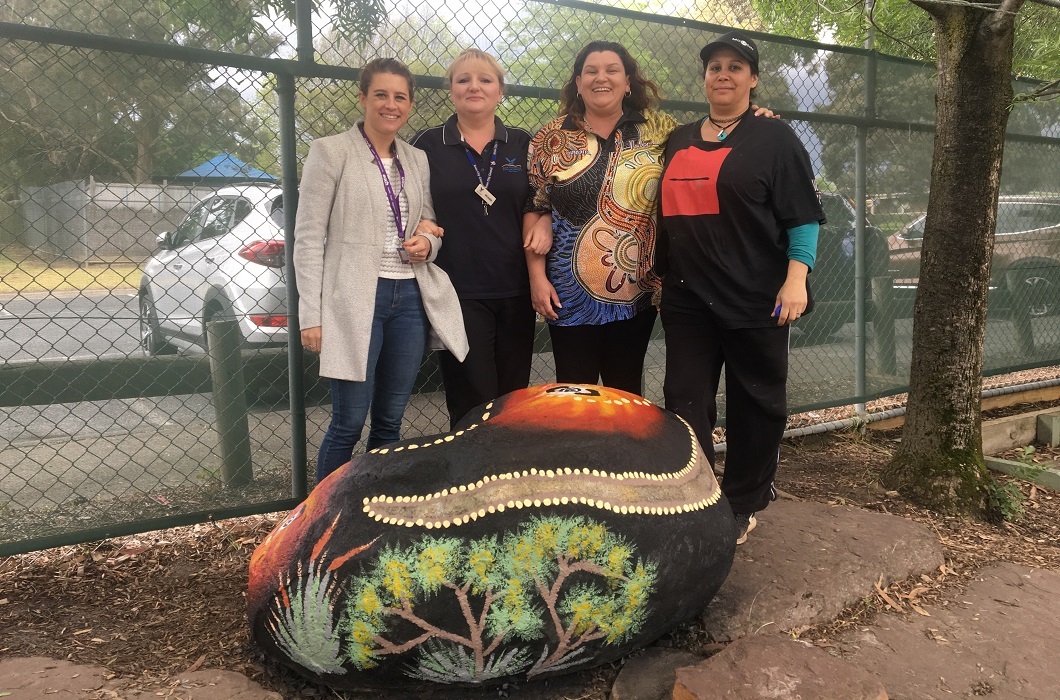Aboriginal Culture is the oldest living culture in the world, dating back over 80,000 years however many people may be uncomfortable or lack confidence in their knowledge or delivery of education around Aboriginal Culture.
Helping local childhood services and schools to create environments that are empowering for Aboriginal and Torres Strait Islander peoples, the EACH Health Promotion Team have taken staff on an educational journey to make their services culturally safe and inclusive.
There are approximately 1320 Aboriginal and Torres Strait Islander people living in Knox and Maroondah (2016 Census). Communicating the importance of identity and cultural safety within an inclusive environment plays a major role in closing the gap of health and wellbeing outcomes for Indigenous children and their families.
Educators, teachers and professional staff play a vital role in helping children break down stereotypes and develop an understanding of Australia’s Aboriginal and Torres Strait Islander heritage.
In 2017, Aboriginal Small Grants ranging from $500 to $1000, were offered to start or build on work around cultural inclusion. To date, 42 Early Childhood Services, 18 primary schools and 3 high schools across Knox and Maroondah have received a grant to enhance their physical environment or run a cultural activity, creating a total estimated reach of 9966 students across the community.
EACH Aboriginal Health Promotion Officer Vanessa Murdoch, also provided one on one support to the settings to do the following:
- develop a bush tucker garden
- invite an Aboriginal Elder to speak about Aboriginal culture
- engage students to create an art mural that reflects the relationship of Aboriginal people with the land and environment
- build awareness of Aboriginal Culture using books, posters, toys, and audio/visual material
- take children and students on cultural learning excursions
- develop and implement a Reconciliation Action Plan (RAP)
- link to local Aboriginal Community Services.
Evaluation will be undertaken to determine if there is an increase in student and community awareness and understanding of the rich cultural history of the local Wurundjeri people of this region.
Services and schools who are currently working on Safe Environments as part of the Achievement Program, to successfully embed health and wellbeing into everyday service/school culture, are able to incorporate activities supported by the grants into their action plans to help reach state-wide benchmarks for this health priority area.
For further information please contact the EACH Health Promotion Team.
How could your school or service apply this knowledge to ‘close the gap’ and create a more welcoming and inclusive environment for Aboriginal and Torres Strait Islander families and communities?
Submit your story!
